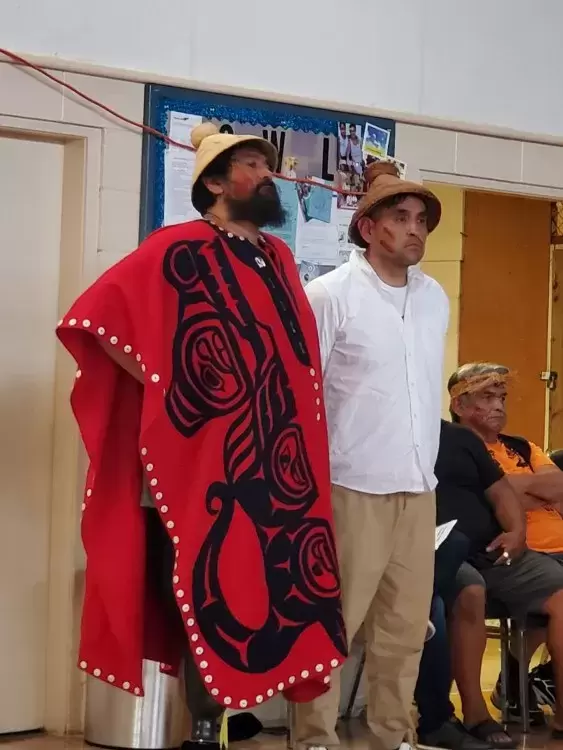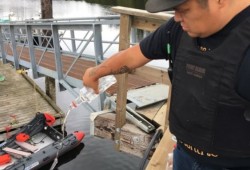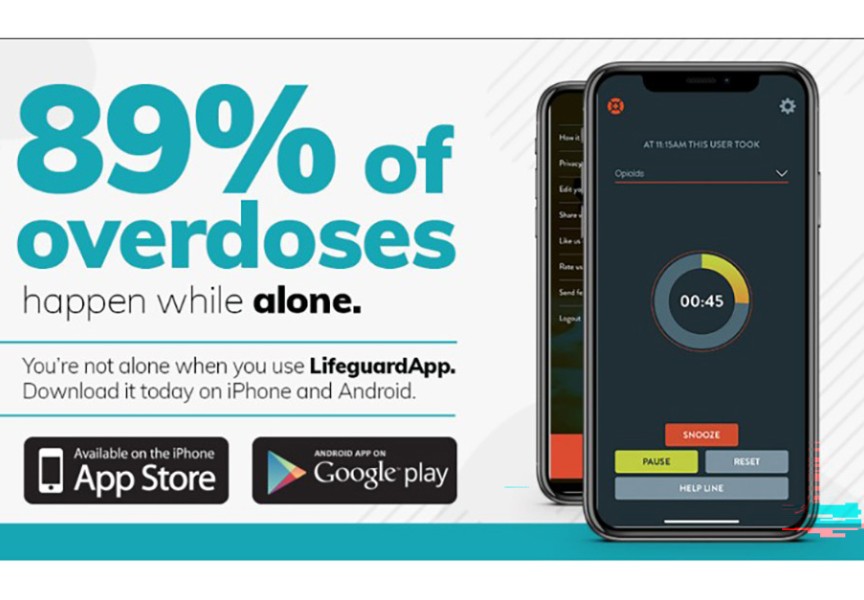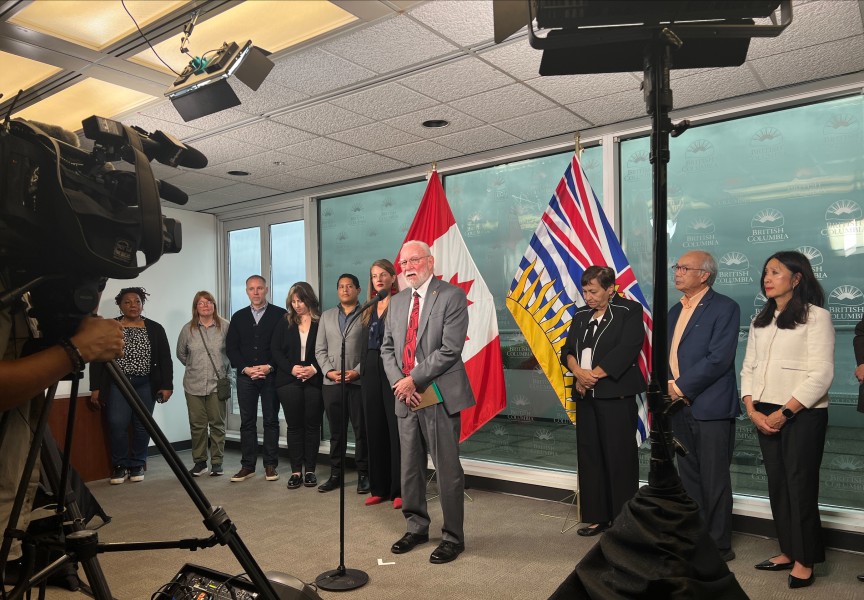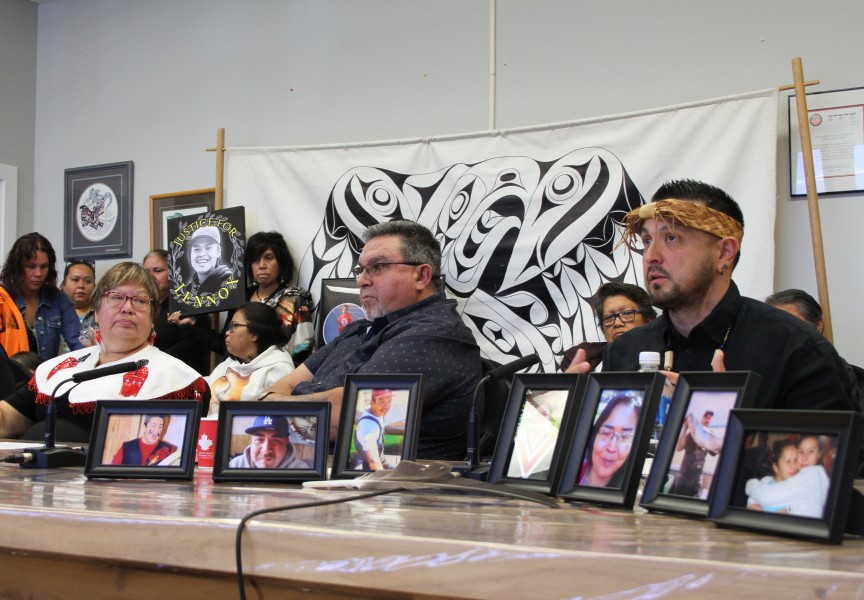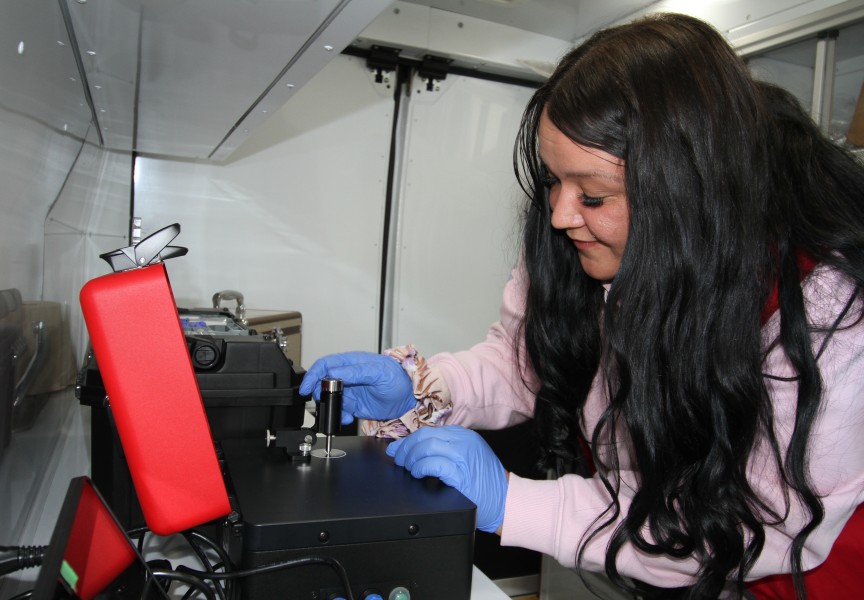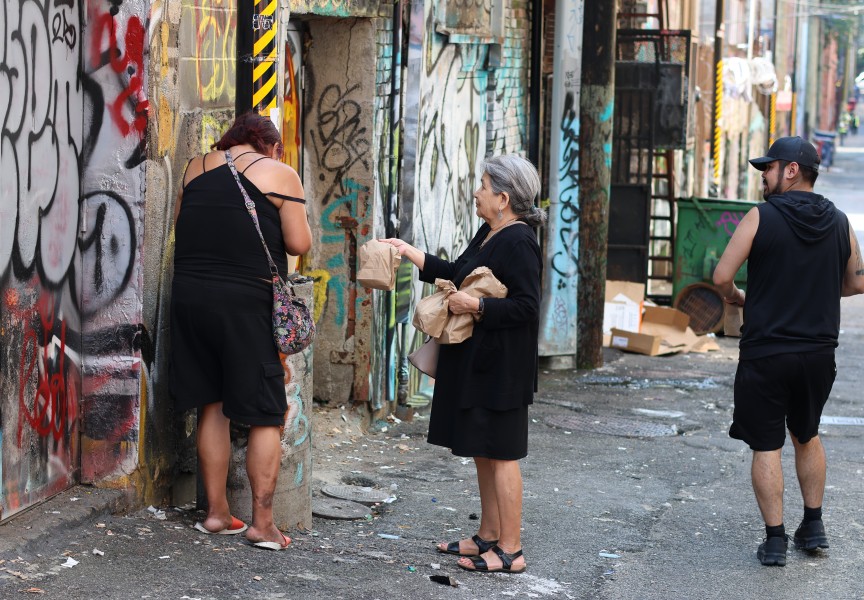Ahousaht Ha’wiih (hereditary chiefs) are working hard to address social issues in the village caused by alcoholism - including asking Tofino council to pass a bylaw that would limit the sales of hard liquor to two 26 oz. bottles per person.
“There have been 65 deaths in two years and about 90 per cent of those are due to liver failure (or other alcohol-related causes),” said Hasheukumiss, acting Ahousaht Tyee Ha’wilth (head chief) for his father Maquinna.
Add to that the domestic violence, drunk driving, sexual assaults and other attacks happening to young people.
“There were two 16-year-olds raped last week,” said Hasheukumiss in an early March phone interview.
Alcohol addiction and the social issues that come with it are a problem everywhere, but in the fast-growing and isolated Ahousaht community the problem has people crying out to their hereditary chiefs for help.
Hasheukumiss said that he has been speaking on behalf of his father Maquinna for the past two years. In that time he has received a steady flow of messages from the muschim (his people) complaining about bootleggers and that minors are buying their alcohol. The people want the problem addressed.
Big bootlegging profits
There is a shocking amount of alcohol flowing into the village with a population of about 1,000 every week. The Ha’wiih stated that a witness reported seeing Ahousaht residents walk out of the BC Liquor Store in Tofino with full cases, 24 bottles of vodka.
“The amount of liquor leaving the store is alarming – 300 to 500 bottles of vodka every week going to Ahousaht,” said Hasheukumiss.
In addition, there is the cold beer and wine store that sells liquor for several more hours after the BC Liquor Store closes.
According to the BC Liquor Store website, a 700 millitre (26oz) bottle of Red Label Smirnoff vodka sells for $22.99. In Ahousaht, bootleggers resell the bottles for at least $60. According to the Ha’wiih, the price increases based on supply and demand. People will pay $80, $100 and even up to $200 a bottle if there’s nowhere else to buy it cheaper.
A case of vodka would cost just over $550. In a single weekend, a bootlegger could make $1440 on the low end, up to $4,800 if they could get top dollar for every bottle. Hanuquii noted that’s a lot of money in a place where full-time employment opportunities are limited.
This prompted the Ha’wiih to approach Tofino municipal council on March 8 with an unusual - but urgent - request to pass a bylaw limiting the amount of alcohol an individual could buy.
If passed, the Tofino bylaw would only apply to the privately-owned beer and wine store. The BC Liquor Store is owned by the provincial government and would require a longer, more drawn-out process to implement limits on individual sales.
Disproportionate domestic violence
At the beginning of the pandemic Ahousaht received federal funding to support measures to protect people from COVID-19. A security team was set up to enforce curfews and to ensure non-residents were not coming into the village. They were given authority to search incoming bags for alcohol. If any were found, they were dumped on the spot.
Even though a vast majority of residents don’t drink, the Ha’wiih estimate that 10 to 15 per cent of the population drink to the point that it’s a problem.
“It’s a small percentage but it causes a lot of pain for the nation,” said Tom Paul, an addictions counsellor in Ahousaht.
There have been some efforts to gain support for making the community safe.
“There have been marches led by elders with kids demanding change and it was a large turnout,” said Hasheukumiss.
According to the Ha’wiih, the security team met with resistance when dumping liquor bottles.
“Some threatened them with two-by-fours and one even pointed a gun,” said Hasheukumiss.
In the past year, the Ha’wiih heard from the RCMP that there were 54 reports of alcohol-related domestic violence in Ahousaht. Over in Tofino, which sees an estimated million-some visitors annually, there were 30 similar domestic violence cases. In addition, Hasheukumiss stated that in the past two months 19 people, including youth, came forward to report they had been raped, some many years ago.
“This stuff gets swept under the rug, especially when it’s time to go to court,” said Hasheukumiss, noting that people are being told to be quiet. “Our people are not going to be silent anymore – I want to make our village safe.”
He noted that it’s not only women and girls being assaulted, but men and boys, too.
For that reason, the Ha’wiih have coordinated retreats for women and separately for men at Kackaamin Family Development Centre in Port Alberni. Once there, the people can begin healing from past trauma.
“I went there with Cliff Atleo to blanket the girls,” said Hasheukumiss, adding that the blanket represents real protection. “It lets them know that we’re behind them and when they feel heavy, they know they can wrap themselves in the blanket and, with the Creator, will feel lighter.”
Resistance to enforcement
The Ha’wiih say there are 40 bootleggers and they know who they are; they refer to one as “the big guy”. Previous efforts to deal with this particular bootlegger have failed, partly due to jurisdictional issues.
According to Paul, a dry reservation bylaw was voted on and passed several years ago, but without enforcement, nothing changed. There are no bylaw officers in Ahousaht.
But on a positive note, the Ha’wiih say that the RCMP were able to act on a municipal liquor law, recently charging one resident twice for contravention of liquor laws.
It was about a decade ago when leaders attempted to make Ahousaht a dry reserve but it failed. Hanuquii is on the security team and it’s their responsibility to patrol the streets and escort the intoxicated people home.
He said there’s a lot of resistance when they attempt to press people to get help.
“It’s hard to engage with them, there’s lots of protection by their family telling us to leave them alone,” said Hanuquii, Hereditary Chief Nate Charlie. “I cruise the streets…some people hate me.”
In the past, Tyee Ha’wilth Maquinna spent $600,000 on healing retreats in an attempt to solve the problem. Bootleggers were confronted and people willing to get help for alcoholism were offered six-week healing programs with minimal success.
“We now know that six weeks is way too short,” said Hasheukumiss.
In the past two years 60 people went to the retreats and, according to Hasheukumiss, only one maintained sobriety for two years.
“We’re burying way too many people before their time,” said Hasheukumiss.
Tom Paul agrees.
“It’s sad that our new graveyard is getting filled, 90 per cent of them alcohol-related,” he said.
Hopes for a dry reserve
Paul said there are only three detox centers on Vancouver Island so Tofino General Hospital is a “revolving detox door”, repeatedly treating people for withdrawals and other alcohol-related conditions. He noted that the First Nations Health Authority is in the planning stages of opening detox beds in Tofino to serve surrounding communities from Hesquiaht to Ucluelet.
The Ha’wiih, through their Maaqutusiis Hahoulthee Stewardship Society, plan to buy a remote resort within their territories that they will run as a healing centre. The vision is to make it available, with the help of First Nations Health Authority, to all Nuu-chah-nulth nations as a beautiful place to heal.
There are also plans to train the existing security team in bylaw enforcement so that they can serve as official bylaw officers.
The Ha’wiih know that what they’re doing will meet with strong resistance by some, but they say they are not in a popularity contest.
“Our job is to keep people safe,” said Hasheukumiss. “We want to raise awareness, educate people on the detrimental effects of alcohol on our nation – and we want to do it in a healthy way, no shame.”
The long-term vision is to use their facilities as healing destination resorts and eventually become a dry reserve.
Hasheukumiss lost a niece to liver failure.
“On her deathbed she said she wanted a ban on all liquor at home, she wanted the new bylaw to be called ‘Helen’s Law’,” he shared.

